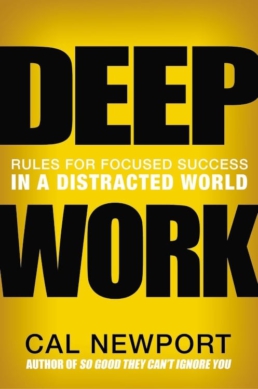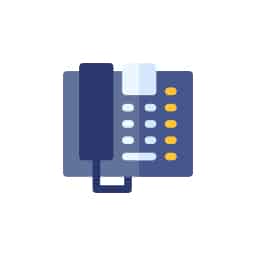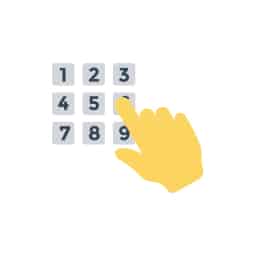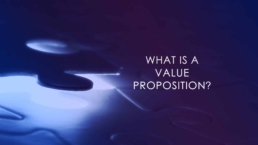Deep Work: Rules for Focused Success by Cal Newport [Book Outline & Summary]
Table of Contents
- The Deep Work Hypothesis
- Who Needs to Read This Book?
- Guru of Productivity, Study Habits, and Work-Life Balance
- Achieving Focused Success in the Modern Economy
- Key Passages in Deep Work
- A Guide for Focused Success and Thriving in a Distracted World
- Small Business Resources for Business & Personal Growth
How Can I Achieve Deep Work According to Cal Newport's Principles?
- Work in a distraction-free environment
- Embrace boredom
- Establish a deep work routine
- Set clear goals
- Implement the 4DX strategy
- Practice the grand gesture
- Embrace down time
- Limit social media and shallow work
- Use the Eisenhower Matrix
- Meditate productively
The potential for distraction online is endless, and the art of maintaining focus has become increasingly challenging. The constant bombardment of digital distractions such as social media notifications, emails, and the allure of always-on entertainment are incessantly competing for our attention. Research has shown that these interruptions are not just a hindrance to our time but also gradually erode our capacity for concentration and become a significant hindrance to the quality of our work. Like kryptonite for our attention span, every bit of distraction weakens our ability to do deep, focused work.
In Deep Work: Rules for Focused Success in a Distracted World, author Cal Newport explores this challenge in detail, articulating the critical need for what he defines as “deep work” – the ability to engage in cognitively demanding tasks without distraction. Newport guides the reader through specific strategies to enhance focus, resist the pervasive pull of distractions, and cultivate a discipline that is becoming a rare skill in our ever-more distracted world, making the book an invaluable resource for entrepreneurs and business owners seeking to maximize productivity in a world filled with interruptions.
LinkedPhone serves the small business community with local & toll-free business numbers that work with your cell phone, desk phone, & laptop. Add a 2nd phone number to your cell phone with our mobile app. Talk & text with clients on the go. Add team members too. Finally break free from the desk phone. At LinkedPhone, freedom rings! 🔔📱💻☎️
The Deep Work Hypothesis
Deep Work is a practical and thought-provoking guide that rests on the foundation of the deep work hypothesis. Here is a concise definition of the idea:
The Deep Work Hypothesis: the ability to perform deep work is becoming increasingly rare at exactly the same time it is becoming increasingly valuable in our economy. As a consequence, the few who cultivate this skill, and then make it the core of their working life, will thrive.
Deep Work sets two goals at the outset: to convince the reader that the deep work hypothesis is true, and to teach the reader how to train their brain and transform their work habits to center deep work in their professional life. For more on the science of habit formation, see our summary of Charles Duhigg’s book The Power of Habit: Why We Do What We Do in Life and Business.
Who Needs to Read This Book?
While Deep Work is aimed primarily at individuals trying to succeed in the new modern economy, where automation and outsourcing are increasingly common, it appeals to a wide range of individuals navigating the challenges of the modern world of constant distractions. It is especially beneficial for knowledge workers, such as researchers, writers, and professionals in fields where deep analytical thinking and concentrated focus are essential for success.
Entrepreneurs, business owners, and freelancers will also find indispensable insights in Newport’s strategies for deep focus. These strategies hold particular significance for those in leadership positions, as they not only facilitate personal productivity but also provide a framework for encouraging a culture of deep work within teams and organizations. These insights can help optimize workflow, enhance creativity, and ultimately contribute to the overall success of business ventures.
For more tips and useful tools for managing time and enhancing productivity, check out our articles on the Best Small Business Productivity Apps & Software, and Time Management Tips to Grow Your Small Business.
Guru of Productivity, Study Habits, and Work-Life Balance
Cal Newport is an acclaimed author, computer science professor, and a thought leader on productivity and work-life balance. With a Ph.D. from Massachusetts Institute of Technology (MIT) and a bachelor’s degree from Dartmouth College, Newport is best known for his books on strategies for success in academic and professional life. His most popular books include A World Without Email, So Good They Can’t Ignore You: Why Skills Trump Passion in the Quest for Work You Love, and Digital Minimalism: Choosing a Focused Life in a Noisy World. Newport also runs a popular blog, “Study Hacks“, where he writes about ideas related to study habits, work-life balance, and career success.
Business Growth Toolkit
Get the latest thought leadership insights on growing your business plus occasional LinkedPhone updates. We respect your inbox!
Achieving Focused Success in the Modern Economy
Deep Work navigates the challenges of maintaining focus and productivity in an environment filled with digital distractions and other demands on our time and attention. The concept of deep work is contrasted with “shallow work,” which is characterized by more routine, non-cognitively demanding tasks which are often performed amidst distractions. These “shallow” tasks typically do not create much new value in the world and are easy to replicate.

The Idea of Deep Work
Divided into two sections, the first part of the book explores the concept of deep work and elaborates on its significance and rarity in the modern professional landscape. It highlights why deep work is not just valuable, but also essential for achieving success, especially in the modern economy. The book underscores the meaningfulness of deep work, setting it apart as a skill that offers significant rewards philosophically, neurologically, and psychologically.
The Importance of Focused Work in a Distracted World
Newport begins his argument for deep work by highlighting what is known as the “Great Restructuring” of the modern economy, where intelligent machines and automation have taken center stage, and the skills of many workers are being automated or outsourced. Newport cites research by MIT economists Erik Brynjolfsson and Andrew McAfee, who provide a case that this Great Restructuring is dividing jobs into two categories, those that will become increasingly automated and outsourced, and those that will become increasingly more valued. They divide the latter category into three groups: the highly skilled workers, the superstars, and the owners. Newport recommends the reader try to join one of these groups to ensure success in the modern economy.
Whether or not you are able to join one of these groups, or already consider yourself part of one, Newport identifies two core abilities for thriving in the new economy:
-
- The ability to quickly master hard things.
- The ability to produce at an elite level, in terms of both quality and speed.
Newport argues that these two core abilities depend on your ability to work deeply. This type of work allows for the mastery of complex information and skills, leading to high-quality, efficient output. He suggests that in a world where attention is fragmented, the ability to focus deeply is a significant competitive advantage.
The Rarity of Focused Work in the Modern Workplace
One of the key challenges highlighted in the book is the pervasive culture of distraction prevalent in most workplaces as well as in our personal lives. Newport notes that deep work is rare in many modern workplaces, which tend to favor instant communication and constant connectivity, leading to a culture of distraction and fragmented attention. The constant barrage of emails and expectations for constant connection and immediate responses creates an environment where sustained, uninterrupted focus is hard to come by. Newport argues that this environment is detrimental to the kind of deep, meaningful work that creates real value and innovation.
The Ability to Find Meaning in Deep Work
In response to modern nihilism, Newport emphasizes that deep work is not merely a means to complete tasks more rapidly; it’s about elevating the quality of what we produce to the level of the craftsman. Deep work, by its very nature, fosters a level of craftsmanship and meaningfulness in work that is hard to achieve in a distracted state. As Newport argues, “A deep life is a good life, any way you look at it.”
Speaking of craftsmanship, our work lives often intersect with our creative lives, and for some of us are one and the same. In Steven Pressfield’s The War of Art, the author describes what he believes is the most significant impediment to achieving our creative goals, what he calls “resistance”, and how we can overcome it. Read our complete review of The War of Art to find out more about this critical insight and how to leverage it in your own endeavors.
Enjoying this in-depth book review?
Check out the full list of business books we’ve rated and summarized for you here: 44 Best Business Books for Entrepreneurs, Startups & Small Business
Also, see our curated lists of business podcasts and online forums for entrepreneurs for more great small business information and community resources.

Rules for Cultivating a Deep Work Ethic
Newport stresses that deep work is not an innate talent, but a skill that can and must be cultivated. In part two, he proposes four key rules along with supporting strategies for developing and maintaining a deep work habit. These principals aim to fundamentally transform the way individuals approach their work, manage their attention, and utilize their time, encouraging a profound, disciplined focus in their daily schedules.
Establishing Routines and Rituals
Newport emphasizes the importance of establishing routines and rituals to create a conducive environment for deep work. This involves setting aside specific times and places dedicated exclusively to intense focus, free from interruptions. He suggests deciding on your “depth philosophy” – or your approach to deep work scheduling, which may be monastic, bimodal, or rhythmic – and creating a regular schedule for deep work sessions. This could include daily blocks of time or longer periods set aside weekly. These routines help train the mind to enter a state of deep focus more easily, and can be used in the workplace by blocking off time company-wide for deep work, when, for instance, meetings are not allowed and workers are not expected to be connected. In some cases, Newport even recommends going against conventional rules and business etiquette, and limiting one’s availability to be reached quickly by easy methods such as e-mail and instant messaging.
Deep Work goes on to highlight the importance of downtime. Rather than being an obstacle to productivity, Newport suggests laziness is the way, arguing that periods of rest are crucial and can enhance one’s ability to engage in deep work. Scheduling regular intervals of relaxation and adhering to them helps maintain a balance, preventing burnout and ensuring the mind is refreshed and ready for intense periods of work. Pair this advice with Ryan Holiday’s thoughts on turning trials into triumphs in his book The Obstacle is the Way.
Embracing Boredom
The second rule for focused success is learning to embrace boredom and wean your mind from a dependence on distraction. Newport argues that the constant stimulation provided by technology has eroded our ability to concentrate. He cites research by Cliffor Nass, who revealed the lasting impacts of multitasking on our ability to achieve laser-focus. Newport therefore advocates for practicing the tolerance of boredom. Rather than taking breaks from distraction, he recommends taking breaks from focus by scheduling the times when you will give in to distraction throughout your day.
Newport introduces a technique called ‘productive meditation,’ especially useful for entrepreneurs and business professionals constantly on the move. Productive meditation involves focusing on a single, well-defined professional problem while engaged in a physical activity that is cognitively non-demanding, like walking or jogging. This practice not only helps in developing a deeper concentration but also in finding innovative solutions to complex challenges.
Evaluating Social Media Usage
Recognizing the significant role that digital distractions, particularly social media, play in fragmenting attention, Newport’s third rule advises maintaining a stringent threshold for allowing these technologies regular access to your time and attention. He provides several strategies for evaluating one’s internet usage, such as the craftsman approach to tool selection: identifying the core factors that determine success and happiness in our professional and personal life, and adopting a tool only if its positive impacts on these factors substantially outweigh its negative impacts. Newport believes that for most people, this evaluation will lead them to quit social media. He also stresses the importance of giving your brain a high quality alternative to the addictive pull of entertainment sites.
Draining the Shallows
The final rule Newport introduces is to “drain the shallows,” which involves minimizing time spent on non-critical, low-intensity tasks. By reducing the time allocated to shallow work, more time and energy can be devoted to deep, high-value tasks. This requires a critical evaluation of one’s tasks and commitments, eliminating or delegating those that don’t contribute significantly to one’s main objectives. Newport recommends the technique of scheduling every minute of your day with time blocking.
Key Passages in Deep Work
-
- “Sometimes to go deep, you must first go big.”
- “Human beings, it seems, are at their best when immersed deeply in something challenging.”
- "Efforts to deepen your focus will struggle if you don’t simultaneously wean your mind from a dependence on distraction."
- “The ability to concentrate intensely is a skill that must be trained.”
- "To succeed with deep work you must rewire your brain to be comfortable resisting distracting stimuli. This doesn’t mean that you have to eliminate distracting behaviors; it’s sufficient that you instead eliminate the ability of such behaviors to hijack your attention."
- "Network tools are distracting us from work that requires unbroken concentration, while simultaneously degrading our capacity to remain focused."
- "You have a finite amount of willpower that becomes depleted as you use it."
- “The shallow stuff that can seem so urgent in the moment turned out to be unexpectedly dispensable.”
- "Idleness is not just a vacation, an indulgence or a vice; it is as indispensable to the brain as vitamin D is to the body, and deprived of it we suffer a mental affliction as disfiguring as rickets."
A Guide for Focused Success and Thriving in a Distracted World
Deep Work is an essential guide for anyone looking to thrive in our modern, distraction-filled world. As Newport shows, a commitment to the skill of deep work is a transformative experience, and is an essential element of success in the modern economy. Newport’s insights into the power of focused work and his practical techniques for achieving it are particularly relevant in an age where attention is fragmented by technology and constant connectivity. Beyond critiquing modern workplace culture, it serves as a call to action and a roadmap for entrepreneurs, small business owners, and freelancers to resist distractions and commit to the discipline of concentrated, meaningful work.
You can find out more about the book and read other reviews or purchase your own copy on Amazon, or listen to the audiobook on Audible.
Did you enjoy this book review? Make sure to check out the full list of 44 Best Business Books for Entrepreneurs, Startups & Small Business.
And don’t forget to browse our collections of business podcasts and online forums for entrepreneurs for more small business resources.
LinkedPhone provides essential communication tools for entrepreneurs and small business owners to help manage busy operations. Find out more about the many professional calling features provided by our virtual phone system, or sign up for a 7-day free trial of LinkedPhone with a free business phone number today!
Small Business Resources
A special high five to Faith Dickens for her outstanding research and contributions to this article. We love working with and supporting like-minded entrepreneurs. Thank you Faith! ❤️
Get In Touch
We would love to hear from you.
Please contact us at any time with questions or feedback.


























